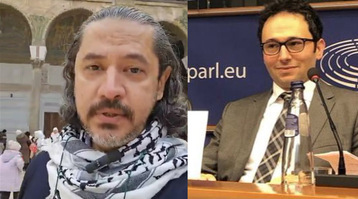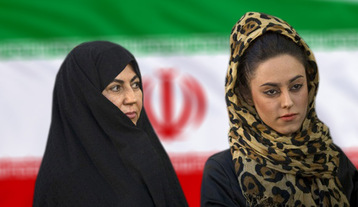-
Shamima Begum loses fight to restore UK citizenship after supreme court ruling

Begum, who fled as a schoolgirl to join Isis in Syria, will not be able to re-enter UK to fight case in person
Shamima Begum, who fled Britain as a schoolgirl to join Islamic State in Syria, has failed to restore her British citizenship after the supreme court ruled on Friday that she had lost her case.
The judgment from the UK’s highest court is a critical – and controversial – test case of the UK’s policy to strip the citizenship of Britons who went to join Isis and are being detained by Syrian Kurdish groups without trial.
Lord Reed, the president of the court, said its judges had decided unanimously to rule in favour of the home secretary and against Begum on all counts before it.
That means the 21-year-old will not be able to re-enter the UK to fight her case in person and will not have her citizenship restored while she is being detained in Syria.
“The supreme court unanimously allows the home secretary’s appeals and dismisses Miss Begum’s cross appeal,” Reed said.
But the court did hold out the slender hope that Begum could have a final appeal against the decision to revoke her citizenship if she were ever to be in a position where she could properly instruct lawyers.
Begum was 15 when she fled east London with two other school friends to join Isis in Syria six years ago. Her UK nationality had was removed in 2019, shortly after she had been found by a journalist in a prison camp.
Although born and raised in the UK, Begum’s British citizenship was removed by the then home secretary, Sajid Javid, who argued she was eligible for Bangladeshi citizenship, the birth country of her parents.
Javid, who is no longer a minister, welcomed the ruling on Friday. He said: “There are no simple solutions, but any restriction of rights and freedoms faced by this individual are a direct consequence of the extreme actions that she and others have taken.”
Maya Foa, the director of Reprieve, said barring Begum allowed the UK to avoid responsibility. She said: “Like many of its European counterparts, the UK is more than capable of bringing home British detainees in Syria, many of whom left as teenagers after being trafficked or groomed online.
“The government should bring the British families back to the UK so that children can be provided with support they need, and adults can be prosecuted where there are charges to answer.”
Begum wanted to be allowed to return to the UK to pursue her legal challenge in person in a test case about the status of Britons who joined Isis and also had their citizenship revoked.
British law allows the home secretary to remove a person’s British citizenship if doing so would be “conducive to the public good”. However, it is illegal to revoke their nationality if doing so would leave them stateless.
A two-day hearing in the case in November heard that Begum was still considered by MI5 as a national security risk because although she had travelled out as a minor, she had “aligned” with the terror group.
Lord Pannick QC, representing Begum, said was unable to put her side of the case properly from al-Roj detention camp where she is held. He told the court she would be at risk of physical harm if she spoke by mobile phone to her British lawyers.
Last July, the court of appeal unexpectedly ruled that Begum, who is being held by the Syrian Kurds, could return home to challenge the British government – prompting the Home Office to appeal to the supreme court.
In a 47-page ruling, the supreme court said the court of appeal had been wrong to conclude that Begum should be allowed to enter the UK and fight her case in person by substituting its own reasoning in place of the home secretary.
“It made its own assessment of the requirements of national security, and preferred it to that of the home secretary, despite the absence of any relevant evidence before it,” the judgment said.
“Its approach did not give the home secretary’s assessment the respect which it should have received, given that it is the home secretary who has been charged by parliament with responsibility for making such assessments.”
Britain’s highest court also concluded that the court of appeal had mistakenly believed that “when an individual’s right to have a fair hearing of an appeal came into conflict with the requirements of national security, her right to a fair hearing must prevail”.
But it held out one remaining hope for Begum, concluding that the only fair response was for any final appeal by Begum against the decision to revoke her British citizenship to be held over until “Begum is in a position to play an effective part in it without the safety of the public being compromised” – although it was unclear when that would be the case.
“That is not a perfect solution, as it is not known how long it may be before that is possible,” the judgment said.
As a teenager, Begum was married to an Isis fighter while she was embroiled in the Syrian conflict and had three children, all of whom have since died. As Isis was defeated, she was captured by the Syrian Kurds in 2019 and has been in their detention ever since at camps whose condition has been described as “dire”.
source: Dan Sabbagh
Levant
You May Also Like
Popular Posts
Caricature
BENEFIT AGM approves 10%...
- March 27, 2025
BENEFIT, the Kingdom’s innovator and leading company in Fintech and electronic financial transactions service, held its Annual General Meeting (AGM) at the company’s headquarters in the Seef District.
During the meeting, shareholders approved all items listed on the agenda, including the ratification of the minutes of the previous AGM held on 26 March 2024. The session reviewed and approved the Board’s Annual Report on the company’s activities and financial performance for the fiscal year ended 31 December 2024, and the shareholders expressed their satisfaction with the company’s operational and financial results during the reporting period.
The meeting also reviewed the Independent External Auditor’s Report on the company’s consolidated financial statements for the year ended 31 December 2024. Subsequently, the shareholders approved the audited financial statements for the fiscal year. Based on the Board’s recommendation, the shareholders approved the distribution of a cash dividend equivalent to 10% of the paid-up share capital.
Furthermore, the shareholders endorsed the allocation of a total amount of BD 172,500 as remuneration to the members of the Board for the year ended 31 December 2024, subject to prior clearance by related authorities.
The extension of the current composition of the Board was approved, which includes ten members and one CBB observer, for a further six-month term, expiring in September 2025, pending no objection from the CBB.
The meeting reviewed and approved the Corporate Governance Report for 2024, which affirmed the company’s full compliance with the corporate governance directives issued by the CBB and other applicable regulatory frameworks. The AGM absolved the Board Members of liability for any of their actions during the year ending on 31st December 2024, in accordance with the Commercial Companies Law.
In alignment with regulatory requirements, the session approved the reappointment of Ernst & Young (EY) as the company’s External Auditors for the fiscal year 2025, covering both the parent company and its subsidiaries—Sinnad and Bahrain FinTech Bay. The Board was authorised to determine the external auditors’ professional fees, subject to approval from the CBB, and the meeting concluded with a discussion of any additional issues as per Article (207) of the Commercial Companies Law.
Speaking on the company’s performance, Mr. Mohamed Al Bastaki, Chairman BENEFIT , stated: “In terms of the financial results for 2024, I am pleased to say that the year gone by has also been proved to be a success in delivering tangible results. Growth rate for 2024 was 19 per cent. Revenue for the year was BD 17 M (US$ 45.3 Million) and net profit was 2 Million ($ 5.3 Million).
Mr. Al Bastaki also announced that the Board had formally adopted a new three-year strategic roadmap to commence in 2025. The strategy encompasses a phased international expansion, optimisation of internal operations, enhanced revenue diversification, long-term sustainability initiatives, and the advancement of innovation and digital transformation initiatives across all service lines.
“I extend my sincere appreciation to the CBB for its continued support of BENEFIT and its pivotal role in fostering a stable and progressive regulatory environment for the Kingdom’s banking and financial sector—an environment that has significantly reinforced Bahrain’s standing as a leading financial hub in the region,” said Mr. Al Bastaki. “I would also like to thank our partner banks and valued customers for their trust, and our shareholders for their ongoing encouragement. The achievements of 2024 set a strong precedent, and I am confident they will serve as a foundation for yet another successful and impactful year ahead.”
Chief Executive of BENEFIT; Mr. Abdulwahed AlJanahi commented, “The year 2024 represented another pivotal chapter in BENEFIT ’s evolution. We achieved substantial progress in advancing our digital strategy across multiple sectors, while reinforcing our long-term commitment to the development of Bahrain’s financial services and payments landscape. Throughout the year, we remained firmly aligned with our objective of delivering measurable value to our shareholders, strategic partners, and customers. At the same time, we continued to play an active role in enabling Bahrain’s digital economy by introducing innovative solutions and service enhancements that directly address market needs and future opportunities.”
Mr. AlJanahi affirmed that BENEFIT has successfully developed a robust and well-integrated payment network that connects individuals and businesses across Bahrain, accelerating the adoption of emerging technologies in the banking and financial services sector and reinforcing Bahrain’s position as a growing fintech hub, and added, “Our achievements of the past year reflect a long-term vision to establish a resilient electronic payment infrastructure that supports the Kingdom’s digital economy. Key developments in 2024 included the implementation of central authentication for open banking via BENEFIT Pay”
Mr. AlJanahi concluded by thanking the Board for its strategic direction, the company’s staff for their continued dedication, and the Central Bank of Bahrain, member banks, and shareholders for their valuable partnership and confidence in the company’s long-term vision.
opinion
Report
ads
Newsletter
Subscribe to our mailing list to get the new updates!






















